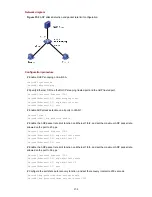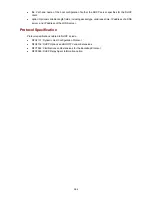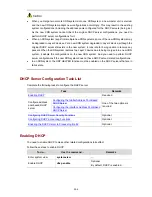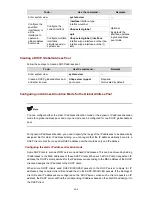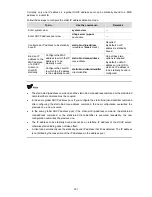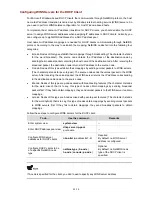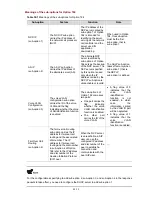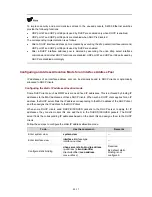
39-7
Currently, only one IP address in a global DHCP address pool can be statically bound to a MAC
address or a client ID.
Follow these steps to configure the static IP address allocation mode:
To do…
Use the command…
Remarks
Enter system view
system-view
—
Enter DHCP address pool view
dhcp server ip-pool
pool-name
—
Configure an IP address to be statically
bound
static-bind ip-address
ip-address
[
mask
mask
]
Required
By default, no IP
address is statically
bound.
Configure the MAC
address to which the IP
address is to be
statically bound
static-bind mac-address
mac-address
Bind an IP
address to the
MAC address
of a DHCP
client or a
client ID
statically
Configure the client ID
to which the IP address
is to be statically bound
static-bind client-identifier
client-identifier
One of these two
options is required
By default, no MAC
address or client ID to
which an IP address is
to be statically bound is
configured.
z
The static-bind ip-address command and the static-bind mac-address command or the static-bind
client-identifier command must be coupled.
z
In the same global DHCP address pool, if you configure the static-bind client-identifier command
after configuring the static-bind mac-address command, the new configuration overwrites the
previous one, and vice versa.
z
In the same global DHCP address pool, if the static-bind ip-address command, the static-bind
mac-address command, or the static-bind client-identifier is executed repeatedly, the new
configuration overwrites the previous one.
z
The IP address to be statically bound cannot be an interface IP address of the DHCP server;
otherwise static binding does not take effect.
z
A client can permanently use the statically-bound IP address that it has obtained. The IP address
is not limited by the lease time of the IP addresses in the address pool.

